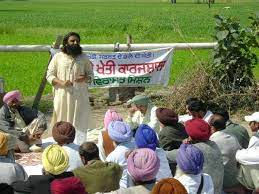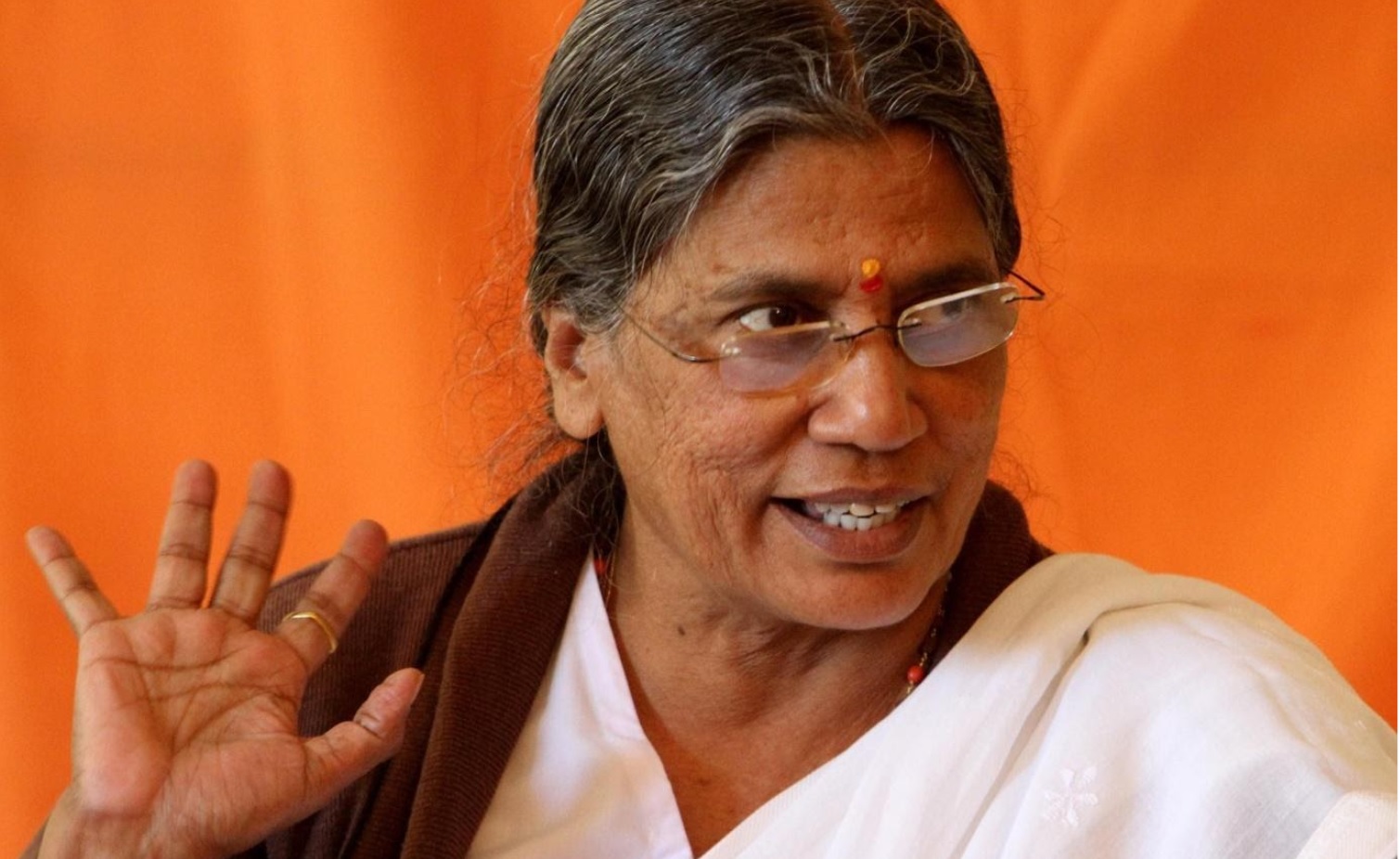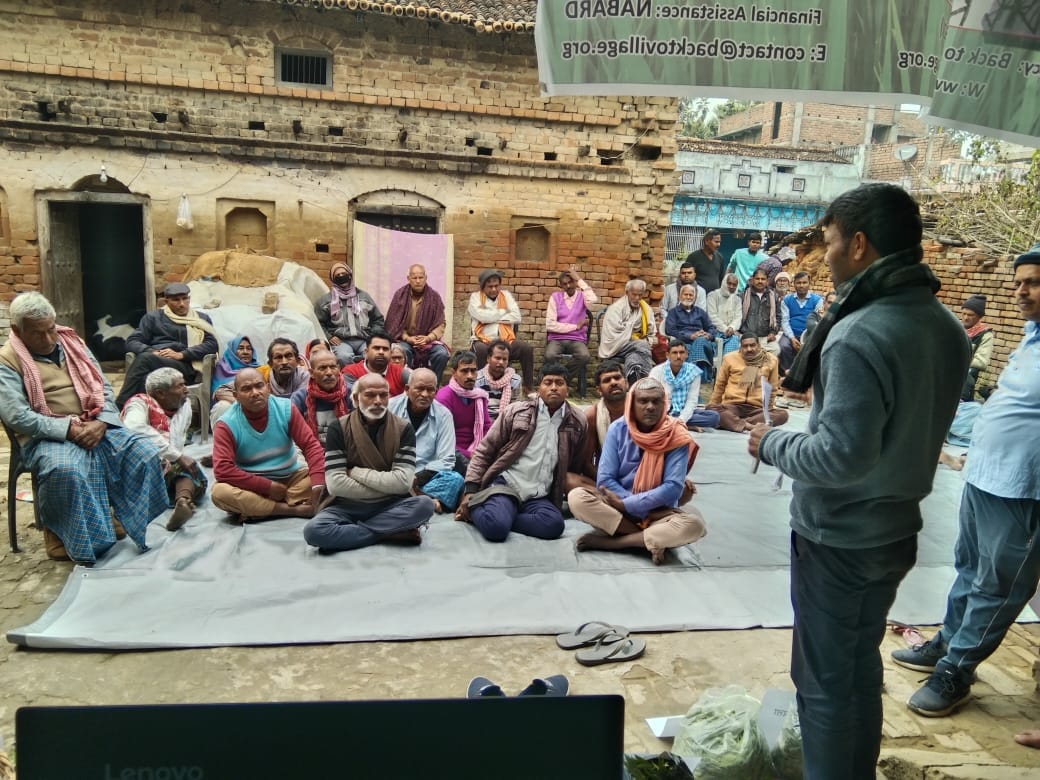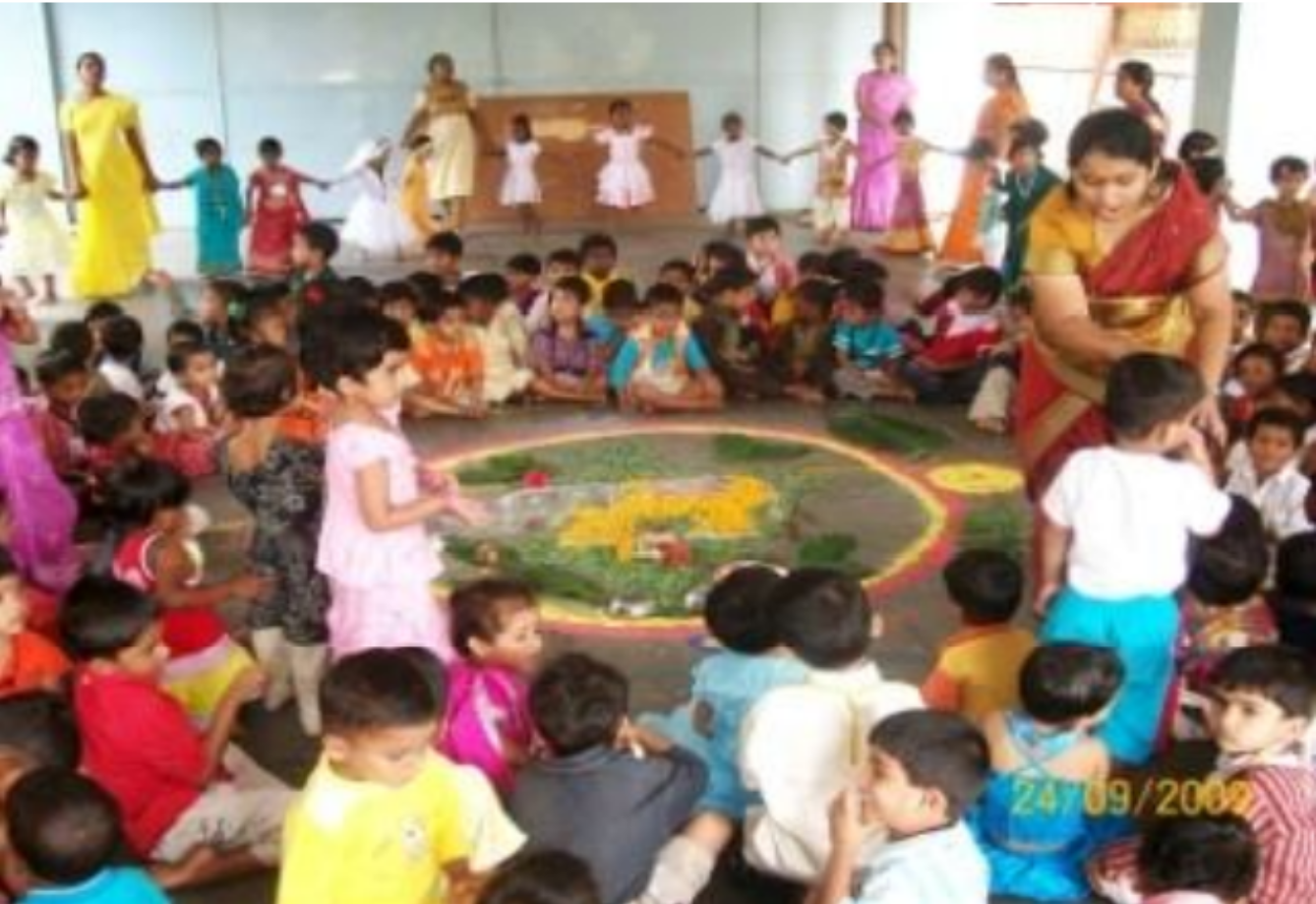“Live life like poetry” he told us “People write many poems in a lifetime, but I want to live my life like a poem”.
It was 1996. A young reporter in Delhi had a calling. He decided to move back to his home state, Punjab. Punjab, is known as the breadbasket of India, especially after the Green revolution of the 1960s. The revolution itself was hailed by one and all for the progress in agriculture that it had made and its role in bringing food security in India. But soon a myriad of problems had set in. Around the 1980s, the agricultural yields began to decrease. Farmers began to spend more money than they earned on importing and acquiring agrochemicals such as fertilizers and pesticides. Jobs decreased as the agricultural sector became mechanized.
Even more concerning, the people living near farms experienced a vast array of health issues as a result of the toxic chemicals in synthetic pesticides and fertilizers. This included high cancer rates and gruesome effects on the fetus of pregnant women. As the land began to deteriorate because of monocultures, the farmers were forced to close down villages and move out because the land could no longer be used for agriculture. Because of these events, the suicides rates of farmers increased dramatically. All the while, the farmers of Punjab continued to grow more and more dependent on synthetic pesticide and fertilizer which were ruining the lives of farmers, the soil of Punjab, and the food security of India. It seemed like there was no alternative to using these agrochemicals.
Umendra Dutt, the young journalist, wanted to see all this changed. He was by no means an expert. What drove him was the pure love for the community. As a young and passionate person, he was determined to learn more about how to bring change. He began to read books about ecology, biodiversity, and agriculture, and as he read them, he learned about the harmful effects of using excessive amounts of pesticides and fertilizers. He also learned about organic farming. He was surprised by the wonders that organic farming could do that would benefit the farmers in the long run. This was when he resolved to promote organic farming in Punjab.
Dutt knew that to remedy the situation in Punjab, he had to change the way agriculture was done; and to change this, he had to change the mindset of the farmers. He began by roaming around Punjab, meeting farmers, and speaking to them. He gathered some information about organic farming and distributed them to other farmers in Punjab. He talked to them about the negative effects of using agrochemicals such as pesticides and fertilizers on the people living near the farms. He told them about how the mechanization of agriculture today caused the loss of jobs, and how organic farming could create more jobs. He told them about how monoculture resulted in a reduction in nutrition and biodiversity in the kitchens, impacting the health of the people of Punjab. Presented with all this information upfront, the farmers listened to him and agreed with him.
However, to put it into action wasn’t that simple. When asked to actually switch to organic farming, none of the farmers were willing to make that switch and take such a risk. All the men he talked to would tell him that it was impractical. In fact, the same trend continued throughout the first year of the project. When he approached higher officials in the government to talk to them and garner their support in his efforts, they would accuse him of being “romantic”. They would also accuse him of conspiring against the food security of India. They said that there was no way to feed all of India, nonetheless only Punjab, being supported only with organic farming. “Leaving agrochemicals behind is impossible,” they all said. He realized that he needed an alternative approach. He needed to somehow prove that nobody would die of hunger without agrochemicals.
Up until this point, he communicated only to the male farmers. Dutt decided to speak with the women farmers and garner their support. He knew that although the men were dominant in these farming households, the women were of no less potential. He approached the women of these households and educated them about the harmful health effects of feeding their families vegetables and grains from crops that are given high amounts of agrochemicals. They immediately understood the dire nature of the situation, and they were ready to hear the proposal Dutt had. This how ‘organic kitchen gardening’ started being adopted.
These women could utilize the small spaces in their homes to grow a diverse array of vegetables, fruits, and grains without the use of agrochemicals. This enabled the women to support themselves and brought back safe and nutritious foods into the kitchens of these farmers’ homes. This initiative was a huge kickstart for the Kheti Virasat mission which Dutt would lead. This initiative started with a mere 80 families and stands today to include 60000 families. From here, Dutt began to see more fruits from his efforts. His team of workers also began to expand, and they implemented more projects and saw improvements.
From here, he was able to appeal to the people of Punjab much more. He told the farmers, “jagthe Raho!” (awaken) “There is a fire in your own house! Whether you do something about it or not is up to you.” The Kheti Virasat mission used a very unique approach to persuade the farmers of Punjab to make that switch to organic farming. If Kheti Virasat told the farmers about the technicalities and scientific aspects of organic farming, that would not make much of a difference for these farmers from small villages. However, when the information is presented with a compelling narrative, common people like the farmers can relate to it easily. The team worked to invite many playwrights, writers, poets, and other artists to come to talk about organic farming and encourage all the farmers to switch to organic farming. They enlightened the farmers of Punjab by saying, “you are part of a dying civilization”, but they told them that it is in their hands to stop this civilization from dying, and that is to switch to organic farming.
Dutt did not have it easy starting the organic farming initiative. He faced many obstacles. Convincing people was tough. In the initial stages, people ridiculed him, they laughed at him, and they thought that he had gone crazy. However, that didn’t stop him. He had only one thing in mind, and that was the goal of saving Punjab. His love for the people of his community and his determination to make a lasting impact on civilization in a way that will be remembered was everything that mattered to him. He told us “Once you truly focus on something, you won’t let it go that easily. You should never leave that goal”. So with this mindset of moving forward, Dutt was able to achieve his goal. Being a changemaker comes with its challenges and its rewards. The fruit of your hard work will indeed be very rewarding, but to arrive at that stage, hard work is essential.
Along with the artists who were being invited, members of Kheti Virasat were able to bring curious and eager students from younger generations to intern and work for Kheti Virasat. Rupsi Garg, from Azim Premji University, was one of the interns who later on became a full-time member of Kheti Virasat. In an interview, Rupsi Garg said that even before coming to Kheti Virasat, she always wanted to contribute to change in society. While doing her masters, she began digging up information about the effect the Green Revolution played on her home state, Punjab. After her third semester working on her master’s degree, she had the opportunity to work at Kheti Virasat as an intern. This experience opened her up to many farmers and housewives who spent their time working with agriculture.
While spending her time at Kheti Virasat she grew an emotional connection with these people. She said that she felt close to Kheti Virasat because of its efforts to revive the old days in which villages were created facilities for a dignified living. Before the Green Revolution farmers, artisans, cooks and many other citizens were all interdependent on each other. This way of life, she says, created a mutual harmony between people and nature which created an effective village. People would grow a connection with plants and animals. However, the Green Revolution gradually stripped this quality of villages away. Increased mechanization yielded a high dependence on machines. She realized that this was her passion and became determined to revive the lifestyle of villages in Punjab at Kheti Virasat. This was when Rupsi Garg decided to continue to work with Umendra Dutt at Kheti Virasat after her internship. She, in fact, became highly involved in Kheti Virasat’s projects geared towards bringing about women empowerment in farmer communities through helping them develop skills: Trinjan. She continues to lead this important sector of Kheti Virasat even today.
As Dutt’s mission began to show progress, it became clear to the people who called him a mere romantic that they might have been wrong. He argued soundly on the basis of two main points: if India is only harvesting a few varieties of crops, then it is NOT food secure, and since it is importing so many toxic chemicals such as urea, it is bringing cancer to the nation. People began to understand the highly negative and dangerous effects of pesticides and fertilizers since these materials cause cancer.
The most remarkable thing about Dutt and the beginnings of the Kheti Virasat Mission is that it started off as pure sewa or service. It was registered as an NGO after 14 years of working for the people of Punjab. It truly is commendable that something that started as a small initiative was able to achieve so much. This only shows that pure sewa like that which started Kheti Virasat can yield true fruits.
However, Umendra Dutt’s mission goes much beyond Kheti Virasat. Dutt wants to make sure that he leaves the younger generations motivated to bring about a change in the society. He says that it is important to learn the history of your culture and heritage because that is the best way to spark motivation within you. From a young age, Umendra Dutt was fascinated by the farming culture in India. As he continued with his education, he gained more knowledge and became more inquisitive about the history of farming which later sparked his motivation for making such a great change. Dutt also tells the younger generations that they, as humans, are on Earth for a reason. They must contribute to making Earth a better place to live, he told us.
(This article is based on the research and interview conducted by the two Indian-American high-schoolers as part of the Dharma Internship Program 2020. The authors acknowledge the valuable suggestions and help from their mentors and program coordinator)

Ishan Dayanayak







